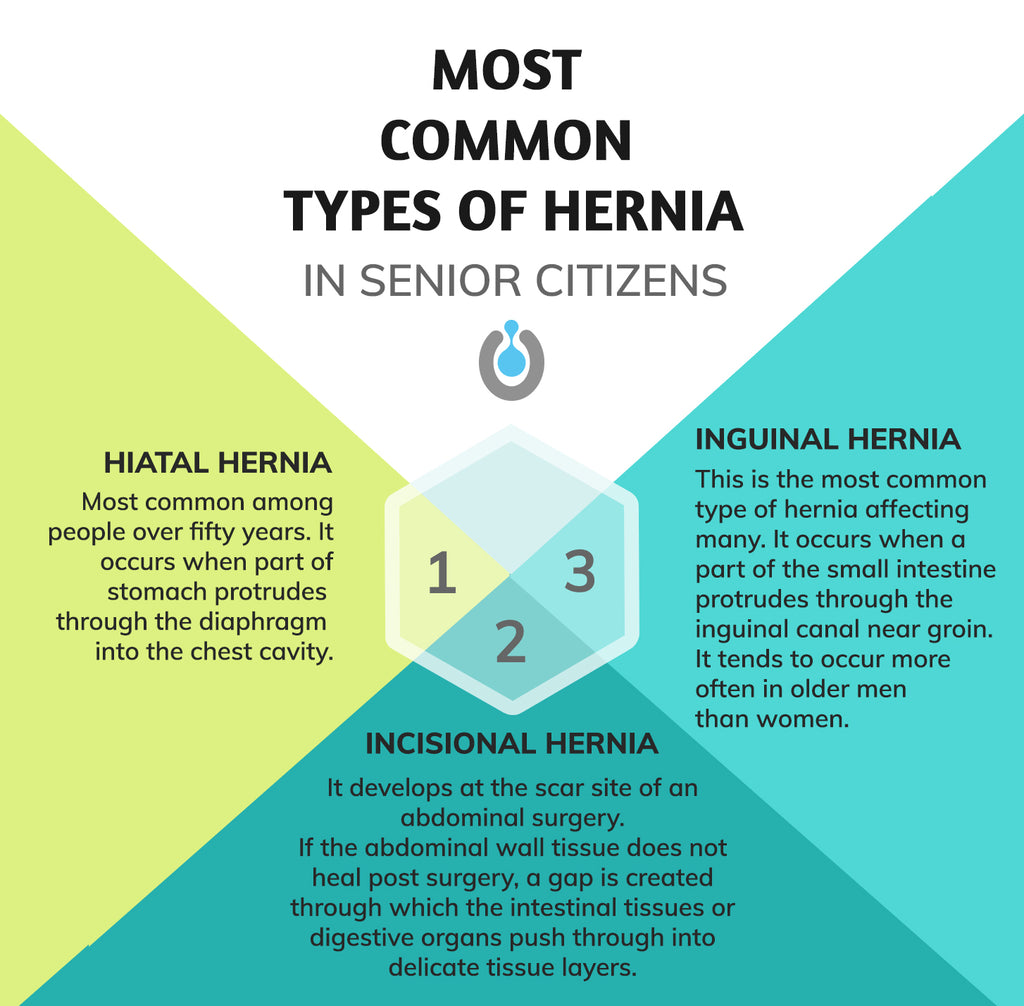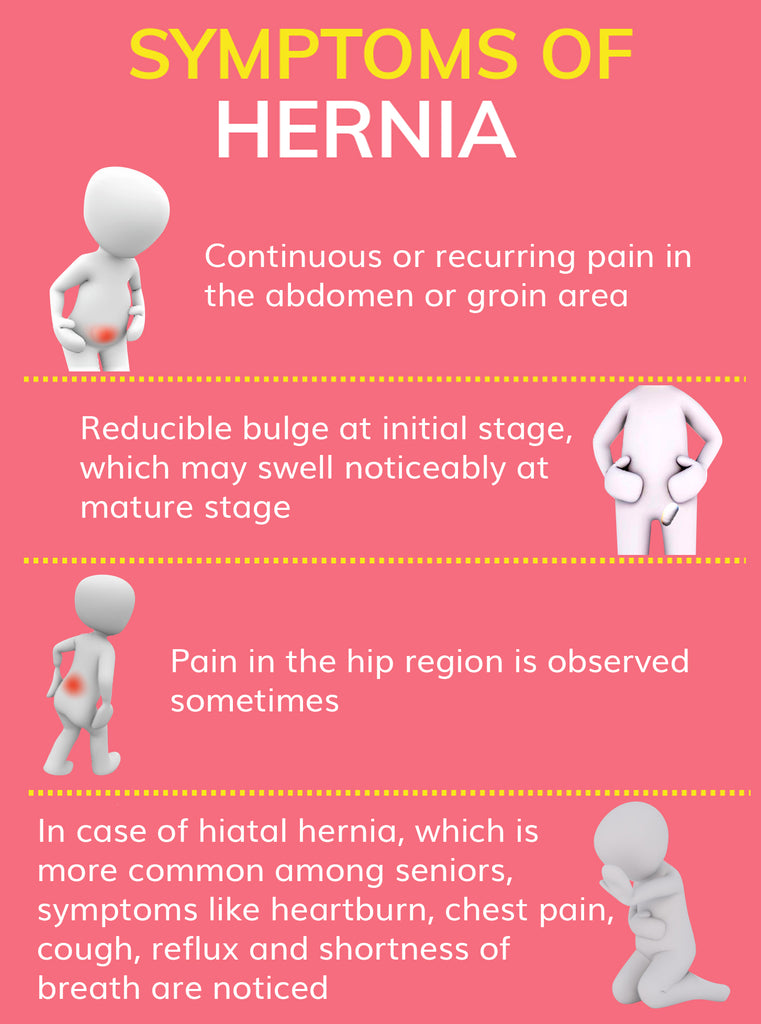ALL ABOUT HERNIA
Hernia is a common ailment among young and elderly persons mostly characterised by small abdominal bulging and pain . In elderly patients, hernia can be a painful ailment if care is not taken in time. Though certain risk factors exist, hernia is potentially less harmful and almost always effectively cured.
WHAT IS A HERNIA?
A hernia occurs due to weakness in muscle tissue, when an internal tissue or organ protrudes through a weakened portion in surrounding tissue layer. As a result, noticeable swelling, pain, inflammation and discomfort in the region is observed.

WHAT ARE THE MAIN CAUSES OF HERNIA IN THE ELDERLY?
A hernia can develop in senior people due to a number of causes.
- Many older people suffering from chronic constipation are at higher risk of a hernia
- People who are overweight, especially heavier around the midsection are more prone as the fat layers exert pressure on the underlying tissues
- A chronic cough, if not treated timely can result in a hernia
- People who underwent multiple abdominal surgeries stand chances of developing post-surgical incisional hernia around the scar site
- People who have difficulty in urination may develop a hernia as a result of increased pressure on the bladder
- Fluid accumulation in the abdomen often causes one. Extended sitting as a result of limited mobility, muscular atrophy and other causes can also lead to hernia
WHAT ARE THE KNOWN SIGNS?

HOW IS HERNIA DIAGNOSED?
If one or more of the above symptoms are noticed, a doctor must be consulted immediately. Doctors generally perform a physical examination, like a gentle touch to diagnose a hernia. In certain cases, ultrasound, MRI or CT scan might be recommended for further confirmation.
WHAT ARE THE TREATMENT OPTIONS?
The most prevalent treatment for a hernia is surgery. Sometimes, constant monitoring and certain lifestyle maintenance are recommended by physicians before a surgery is performed. Often a supportive hernia belt is prescribed to be worn to control the pain.
"IS SURGERY SAFE FOR ELDERLY PATIENTS?ARE THERE RISKS?"
The most common question that arises when talking about hernia in the elderly is whether surgery is a safe treatment option for them. Doctors say it is completely safe and harmless.
Though, in this context, a few points are worth keeping in mind.
- Inguinal Hernia: In case of an inguinal hernia, open hernia surgery can be safely performed (even in patients with cardiac disease) using local anaesthesia. However, Laparoscopic surgery is not recommended since it requires general anaesthesia which creates complications
- Incisional Hernia: Modern cutting edge technology allows complex surgery even in elders who are frail. To arrest growth of incisional hernia at early stage post surgery, look out for signs like postoperative pain, bowel obstruction, infection at the site
HOW CAN HERNIA BE PREVENTED FOR ELDERS?
Certain lifestyle changes are recommended as one age which can minimize the risk factors of developing hernia
- Any strenuous work must be discouraged strongly
- Dietary changes like inclusion of fibre and whole grain-rich foods, fibre supplements, more intake of fluids and avoiding spicy foods must be ensured
- If an elderly person has the habit of smoking, it should be stopped at the earliest. Healthy snacks might come handy to control cravings when quitting
- Obese seniors should consult a physician or authorised dietician for methods to reduce and maintain a balanced weight
- Any rapid loss in weight due to change in prescription or prolonged illness should be checked. Caregivers must consult a physician if weight loss exceeds 1 kg per week, or there are sudden bowel or appetite changes
- Chronic constipation must be treated with priority
- Very light exercises that strengthen core muscles around the torso and pelvic region, like low impact yoga, can be practised under the supervision of a physiotherapist
- Geriatric caregivers must ensure constant monitoring and care especially post-surgery
CONCLUSION
Hernia's are no longer a life-threatening ailment amongst the elderly, with modern treatment options available. Proper medication and care in time can often reduce the need for surgery. Surgery, if required, is safer with the latest in medical technology, ensures almost zero recurrence and complete recovery into a healthier, happier, longer life. Keep smiling.
By: Sayantani Nath
Guest Author and Student of Biology
Bibliography
Inguinal hernia in the elderly. Indications, techniques, results, NCBI | Emergency hernia repairs in elderly patients, NCBI | Incisional hernia in the elderly: risk factors and clinical considerations, ScienceDirect | Hernia, Healthline


